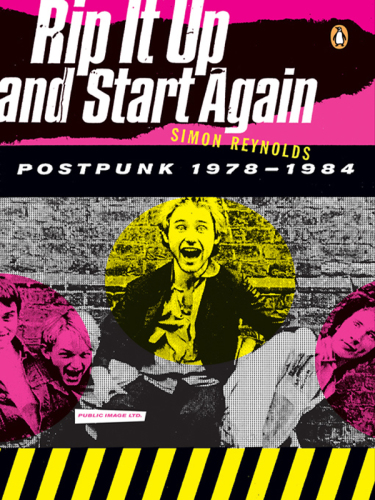
Rip It Up and Start Again
Postpunk 1978-1984
کتاب های مرتبط
- اطلاعات
- نقد و بررسی
- دیدگاه کاربران
نقد و بررسی

January 16, 2006
In the reactionary wake of 1970s punk rock came postpunk, a more complex, fragmented brand of music characterized by stark recordings, synthesizers and often cold, affected vocals. Postpunk stands as "a fair match for the Sixties," argues Reynolds, both in terms of the amount of great music created as well as the music's connection to the "social and political turbulence" of its era (the early 1980s). Seeking to address a gap in music and pop culture history, Reynolds (Generation Ecstasy
) has penned an ambitious, cerebral effort to establish a high place in rock history for bands such as Joy Division, Devo, Talking Heads, Mission of Burma and, of course, Public Image Limited (PiL), fronted by former Sex Pistols singer John Lydon (Johnny Rotten). Reynolds, an energetic writer, especially captures the postpunk ethic in telling the story of PiL's short journey from record company darlings to utter oblivion. Unfortunately, by the time he gets to bands like Human League and Frankie Goes to Hollywood, his passion is undermined by his subject. Reynolds succeeds in depicting the icons and the richness of an era that clearly manifests itself as a primary influence among a new generation of musicians.

February 15, 2006
The words -Ever get the feeling you -ve been cheated?, - uttered onstage by Sex Pistol Johnny Rotten as his band disintegrated around him, are usually treated as the eulogy of punk. But what if, as music journalist Reynolds ("Generation Ecstacy: Into the World of Techno and Rave Culture") posits, the quote was actually intended as an epiphany, a new beginning? This thesis forms the cornerstone of Reynolds -s highly subjective and illuminating history of the all-too-brief but influential postpunk era. And what an era it was! PiL, the Slits, the B-52s, Joy Division, Throbbing Gristle, Gang of Four, Devo, and others all saw the opportunity to create something new out of the chaotic rubble of punk. Reynolds -s enthusiasm makes up for any omissions or critical missteps that inevitably come when trying to cover such a disparate ideological and musical subgenre. Although it -s the first book to deal with postpunk, this book stands as a peer among substantive punk histories like Jon Savage -s "England -s Dreaming: Anarchy, Sex Pistols, Punk Rock, and Beyond" and Legs McNeil and Gillian McCain -s "Please Kill Me: The Uncensored Oral History of Punk". Warmly recommended for all libraries." -Matthew Moyer, Jacksonville P.L., FL"
Copyright 2006 Library Journal, LLC Used with permission.

























دیدگاه کاربران